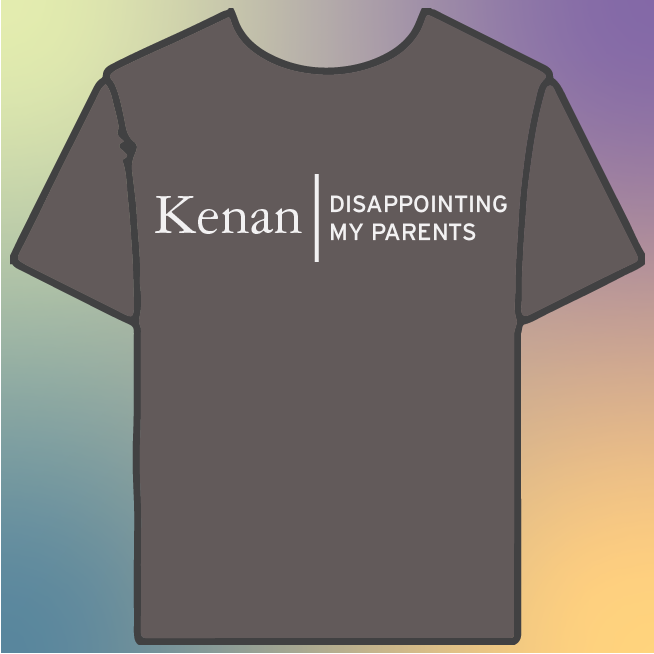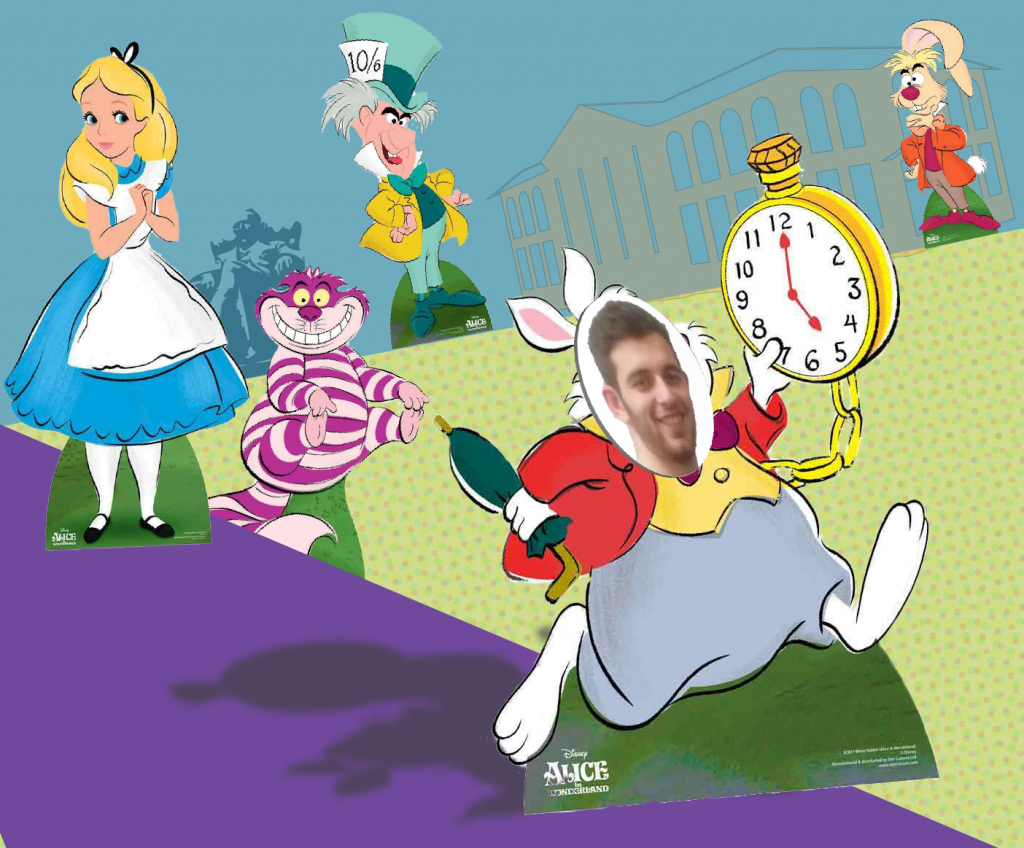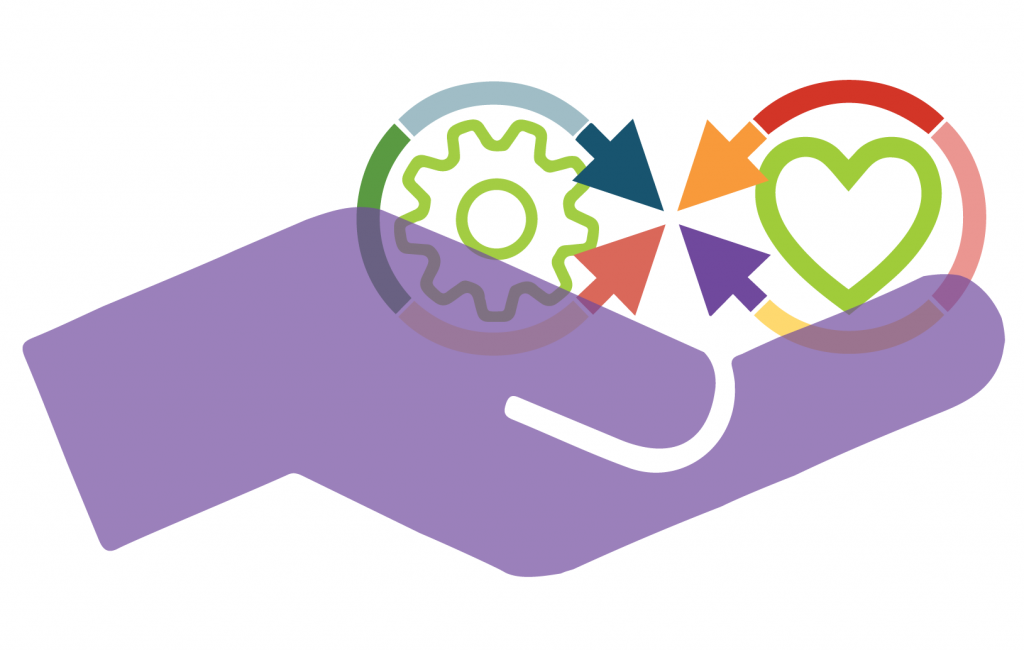“We need to learn from several centuries of genocides, epidemics, enslavements, migrations and the like if we want to improve as a species. But I also think it’s more than that. Done right – accessible in writing and focused on those who are often unseen – history can be the best, most accessible record of humanity.” – Barry Yeoman, Durham Independent Journalist
 “History is important because it explains where we come from,” Ms. Leona Tate answered my question with. Just over 50 years earlier, she had been one of the four Black girls to desegregate New Orleans’ public schools. She had made the history that we study today, and by doing so, as a first-grader, she took part in shaping her own explanation from where she came…
“History is important because it explains where we come from,” Ms. Leona Tate answered my question with. Just over 50 years earlier, she had been one of the four Black girls to desegregate New Orleans’ public schools. She had made the history that we study today, and by doing so, as a first-grader, she took part in shaping her own explanation from where she came…
I recently declared my second major as History. And, while I am proud to call myself an economics-history double major (with the signature Kenan ethics certificate of course), I was apprehensive to share my decision with my family. In reality, I felt that the Kenan in the, “Kenan | disappointing my parents” t-shirt [1] could very well be replaced with History. I wasn’t sure if my family would support history as a major, because there are no direct career prospects (at least far fewer than in other, more practical, majors). I am lucky that my family is extremely supportive; however, before telling my family about my decision, I thought it worthwhile to fully understand the value of history and why it’s worth pursuing. Accordingly, I spent my Spring Break on a quest to defend history.
My friend and I rolled up to our Air B&B in Badin, North Carolina after a car ride through the countryside. As we parked our Enterprise rental car, the house owner — a middle aged, African-American woman whose gave off an aura of kindness — opened the front door and invited us inside. Leaving the car, we wearily unpacked our bags and entered. The house was humble: wooden walls, pictures of family, furniture with designs dating back to the early 90’s. Although we were both tired from our travels, my friend and I wanted to learn more about the person we were staying with and about Badin, North Carolina.
“So, what’s it like in Badin?” my friend asked the owner, who was eager to answer. She explained that she had grown up in Badin, that her great uncle had built the house and that Badin’s tranquility is something she treasures. The conversation took off from there. She made mention of Badin’s French roots, its segregated past, and lasting environmental and racial legacy. She then mentioned how the old aluminum plant, which was the city’s major employer, was found responsible of significant environmental injustice, and had to pay reparations after losing a lawsuit. Eventually, it decided to shut down, and set up shop in a less troublesome place, leaving many Badin residents unemployed. She explained that now Badin is mostly an aging community, with few young folk coming in because of the lack of employment. She was so in touch with her community’s history that I was compelled to ask her why she thought history was so important, to which she responded “because it helps us know where we come from…”.
We went to bed, and, I pondered her response. I considered how her understanding of history’s importance shapes how she views the present and her place within it. I began to reflect. Why do I think history is important? What role do narratives play in shaping identity?
The next day, my friend and I walked into a small shop in downtown Badin. Another woman — this one strong-spirited, White and only slightly older than the woman we were staying with — approached us in full Carolina gear and introduced herself. We quickly learned that she had grown up in Badin “where everyone would look out for each other,” and, after a career elsewhere, she returned to the humble town to run her father’s shop. Similar to our Air B&B host, the store owner explained how Badin was a former French town, and how there used to be a large aluminum plant that closed down, leaving many unemployed. I asked why it had closed down, expecting to hear about environmental injustice, but she explained that no one knew exactly why. She then mentioned that it could have been because there was a cheaper place to manufacture abroad, perhaps in Mexico. When I asked about environmental harm the plant caused, she explained that “sure there was harm, but they did the best they could knowing what they knew at the time.” It was fascinating to juxtapose this with the narrative I had heard the night before.
My friend piped in and asked her about growing up in Badin. She expressed that she had grown up in segregated Badin, and was in high school when schools were desegregated; however, she clarified that her family was working class, “not those county club folks, nope, we were their caddys.” We spent nearly two hours talking to her in her shop before we decided it was time for our hike. But before we left, I asked the store owner why she thought history was important, to which she responded “because it makes sure we learn from our past.”
On our hike, my friend and I spoke about the differences in the two ladies’ recounting of Badin’s history. Both had a different understanding of the role of the aluminum plant and segregation in Badin’s past. And, the framing of these narratives significantly altered their implications today. We tried to consider what led to these differences. The aluminum plant was a major part of town life, and there were fundamentally different understandings of the role it played, whether the plant’s actions were justified and why it eventually shutdown. I wondered how their two understandings could be reconciled. And, if a small town of less than 2,000 people could have such different understanding of their past, what implications that had for the rest of world.
Driving back to Duke from Badin, all I found myself reasking: Why do I think history is important? What roles do narratives have in shaping identity? And, how can different narratives of history be reconciled?
The next day, I found myself on a plane to New Orleans with Kenan’s Living Learning Community. Our trip focus: environmental and racial justice in New Orleans. Throughout the trip, we spoke with accomplished figures ranging from activists and city councilmen, to a professor specializing in New Orleans’ architectural history, to the current Rabbi of a New Orleanian Jewish congregation founded in the 1840s, to the Ms. Leona Tate (quoted above), to countless strongly opinionated Uber drivers. I made sure to ask each of them questions about why they thought history was important and how history shapes contemporary New Orleans. Each gave a similar, but slightly different answer. It reminded me of Badin again. I was still unsure why I thought history was important, what role narratives play in shaping identity and how to reconcile different histories.
With these questions still on my mind, I entered into our group debrief. We sat as a group and reflected on what we found worthwhile or noteworthy from the day. Typically, I sit quiet during these kinds of moments, but this time I felt compelled to share what was on my mind…
“We heard from people that history is ‘how we orient ourselves,’ ‘how we learn from our mistakes’ and ‘a tool for change,’ but how do you suppose people make sense of contrasting narratives of history, narratives that are fundamentally different?” The room went quieter than Badin, North Carolina in the middle of a cold winter night.
And then someone responded, everyone has their own recounting of a story, but that is just what history is — a collection of stories. As long as we make room for both the told and untold narratives, and don’t deny anyone — save extremists — the legitimacy of their history, their version of the story, we can begin to reconcile very different understandings of a shared past. It is through nuance, and individual relationships that this reconciliation can begin… There is no wisdom in the public square.
That last part stuck with me most: “there is no wisdom in the public square.” That was to say that discourse with a large audience makes nuance difficult to find, and, seeking these nuances is not what most media does today. To deny complete legitimacy to one side is dangerous. Doing so is a catalyst to unhealthy polarization. It’s easy to fall victim to the wisdom-less public square, but we must rise above that temptation. Understanding multiple narratives of history gives people the power to overcome ignorant polarization. The wisdom of the public square lies within its history.
I recalled my earlier conversation with Ms. Tate. She was right. History does explain where we come from. And, with the proper interpretation, readiness to listen to multiple narratives and a healthy rebellious spirit, history is a tool we can use to understand our identities in the present and shape our futures. History was used to initially keep Ms. Tate in segregated schools, and now history is being used to keep Ms. Tate’s grandchildren in de-segregated schools. I found the answers to my questions.
As I leave New Orleans, refreshed from a Spring Break, I am ready to return home and excited to explain to my family that History is my second major. I am studying a field that everyone can relate to, a field that although seems distant, impacts daily life, and a field that can polarize people as quickly as it can build intersectional bridges between entire communities. From studying History and Herstory one understands Ourstory, and ultimately know how to uplift and progress toward a better world…
Eagerly entering my house after a long week in New Orleans, I shout out “Mom, Dad, Makayla… I am a history major!” And then they all come down smiling and congratulating me. No justification needed, no questions asked… Okay that’s not exactly what happened, but it’s good to stay idealistic!
What actually happened was as I told my family about my historical decision, and they, like expected, were supportive. However, I could tell they were thinking why history deep down. To help qualm their apprehension, I explained to them what I discovered over Spring Break about history, concluding my sales pitch by mentioning that I am still an economics major. Finally, I could tell that they were comfortable with my decision.
I am now back at Duke and still unsure how much of a role my justification, versus the fact that I was still studying economics played in ultimately getting their approval. I don’t think I will ever know, and, I am not convinced it is important to know. Rather, I am confident that my decision is grounded in logic, feels right, is based in my impassioned curiosity and combines pragmatism with idealism. And, for those reasons, I am confident I am making the right choice.
[1] Each year the Kenan Institute for Ethics produces a satirical “major declaration” t-shirt for students who “declared” they are studying ethics or the sorts (note: there is no ethics major, just a certificate, making the shirt even more satirical). One year the shirt featured this expression. Just like in any good satire, there lies a piece of truth under the humor. While it’s taken for granted that professors are experts in their field, it is refreshing to know Kenan professors and staff are experts in their fields with a good sense of humor.


 “History is important because it explains where we come from,” Ms. Leona Tate answered my question with. Just over 50 years earlier, she had been one of the four Black girls to desegregate New Orleans’ public schools. She had made the history that we study today, and by doing so, as a first-grader, she took part in shaping her own explanation from where she came…
“History is important because it explains where we come from,” Ms. Leona Tate answered my question with. Just over 50 years earlier, she had been one of the four Black girls to desegregate New Orleans’ public schools. She had made the history that we study today, and by doing so, as a first-grader, she took part in shaping her own explanation from where she came… I am writing to you both today in response to a question I posed to you both this past summer. “What should one aspire to become?” I recall the moment vividly when you had both thrown the question back on me, challenging me to answer my own impossible question. What a luxury it must be to be a professor, I thought at the time. I would never have to answer any difficult questions, but rather could throw them back at my students to figure out for themselves. Of course, I never said that, but I was certainly thinking it. Today I write to you both to thank you for throwing the question back on me. I now realize that in doing so lied the answer…
I am writing to you both today in response to a question I posed to you both this past summer. “What should one aspire to become?” I recall the moment vividly when you had both thrown the question back on me, challenging me to answer my own impossible question. What a luxury it must be to be a professor, I thought at the time. I would never have to answer any difficult questions, but rather could throw them back at my students to figure out for themselves. Of course, I never said that, but I was certainly thinking it. Today I write to you both to thank you for throwing the question back on me. I now realize that in doing so lied the answer…
